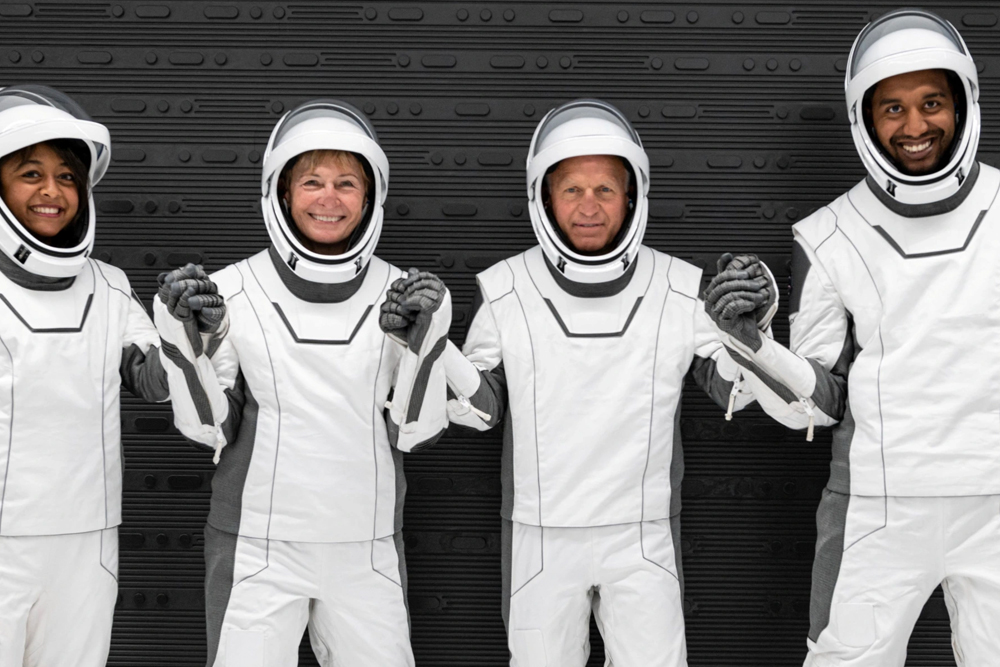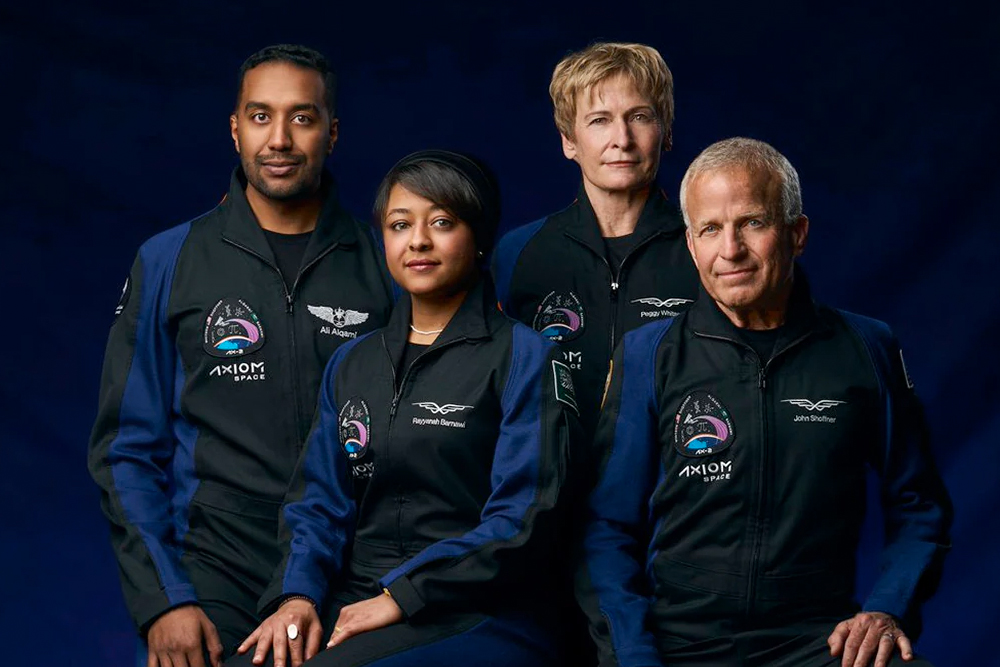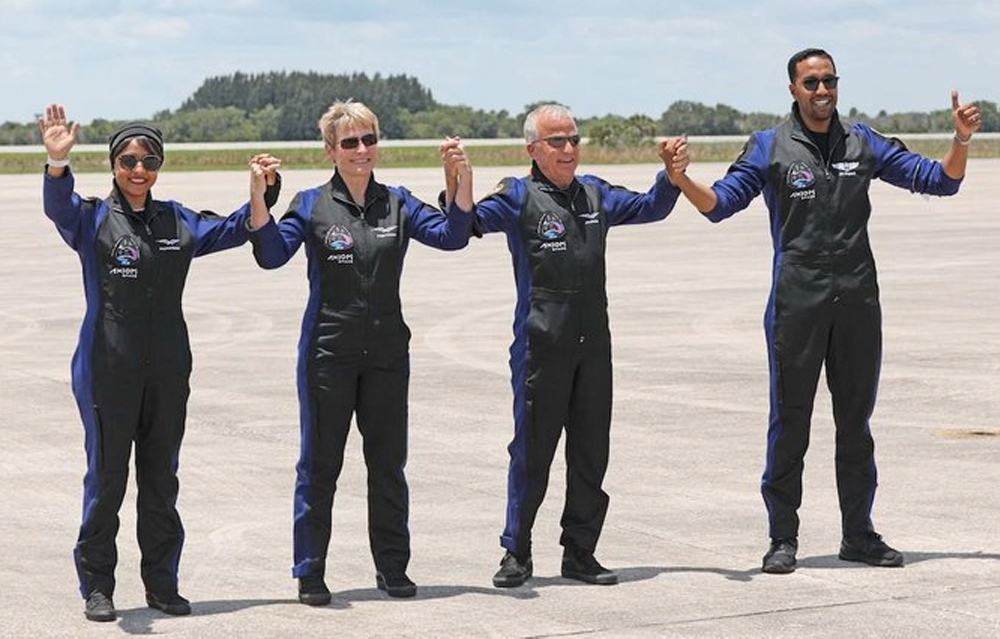
In yet another historic moment, Saudi astronauts Rayyanah Barnawi and Ali Alqarni have embarked on the Axiom Mission 2 to the International Space Station after taking off in a SpaceX Falcon 9 rocket from the Kennedy Space Center in Florida. Their journey marks a significant milestone for Saudi Arabia's space exploration endeavors.
Rayyanah Barnawi, a scientist specializing in cancer stem-cell research, is Saudi Arabia's first woman astronaut to go to the International Space Station pic.twitter.com/OgZNKHbqAa
— Reuters (@Reuters) May 21, 2023
Barnawi, the first Arab woman to reach orbit, has an impressive academic background. Holding a BA in biomedical sciences from the University of Otago, New Zealand, and a master's degree in biomedical sciences from Alfaisal University, she encompasses over nine years of experience in stem cell and tissue re-engineering. Barnawi's role as a research laboratory specialist will undoubtedly contribute to groundbreaking discoveries in space. Fellow astronaut, Alqarni, a captain in the Royal Saudi Air Force, holds a BA in aeronautical science from the King Faisal Air Academy and a diploma in aeronautical science from Vance Air Force Base in the US.

The astronauts' eight-day stay on the International Space Station will be filled with scientific endeavors. They are scheduled to conduct 14 experiments, with 11 focusing on microgravity and its effects on the brain and eyes. Additionally, three educational awareness experiments involving 12,000 students from across the Kingdom will take place. Their mission is not only a testament to Saudi Arabia's commitment to space exploration but also an opportunity to inspire future generations of Saudi scientists.
The Axiom Mission 2 is part of the Saudi Space Commission's Human Space Flight program, aimed at expanding the Kingdom's contributions to science and promoting sustainable space exploration. This mission sets the stage for future long-stay missions and research opportunities, enabling Saudi astronauts to conduct further groundbreaking research on the Moon and Mars. The program aligns with Saudi Arabia's Vision 2030 plan, which emphasizes the development of knowledge and technical skills, economic diversification, and the expansion of industries.

With the successful launch of 16 Saudi satellites from 2000 to 2019, Saudi Arabia has made great strides in providing communication capabilities, internet connectivity, and secure telecommunications in the Middle East, North Africa, and Europe. The recent launch of the Saudi Geostationary Satellite 1, developed by a team from the King Abdulaziz City for Science and Technology, has further enhanced these capabilities.
As Rayyanah Barnawi and Ali Alqarni venture into space, they carry the aspirations of a nation with them. Their groundbreaking achievements will undoubtedly inspire future generations of Saudi scientists and contribute to the Kingdom's growing reputation in the field of space exploration. The Saudi Space Commission's commitment to fostering international collaboration and expanding the Kingdom's role on the global stage demonstrates Saudi Arabia's determination to reach for the stars and unlock the mysteries of the universe.

















